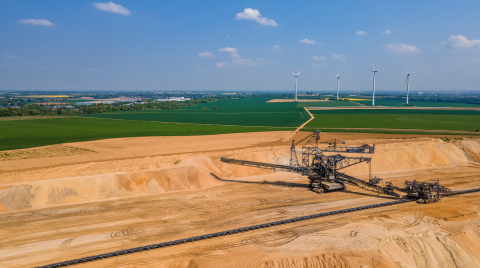
It is time for Indonesia to take the plunge on contract transparency
Advancing contract transparency in Indonesia
Indonesia’s natural resource history stretches back to its fabled spice islands. Moving forward several centuries to the 1960s, the nation introduced an innovative contract, now typical in the oil and gas sector, called a production sharing agreement (PSA). This type of agreement is currently used in many oil- and gas-rich countries, as a way for governments to obtain a share of the oil and gas produced.
Today Indonesia has 98 contracts in the oil and gas sector, with varying fiscal terms. For example, a type of tax called first tranche petroleum (FTP) varies from 5% to 20% in the amount expected to be levied. This means that in practice, officials must check contract terms on an ongoing basis to ensure each company is paying the correct amount. This is a significant bureaucratic endeavour. These contracts are not publicly available, which puts further pressure on officials and companies to ensure these nationally important projects are paying the correct amount of tax. Even a minor error or oversight could result in significant over- or underpayment of tax. A few contracts were published in the past: the resourcecontracts.org website includes four Indonesian PSA contracts that were signed in the 1990s, but all have since expired.
The model PSA contract, which is the template and point of departure for negotiations between government and companies, is available online on the Indonesia EITI website. Given that contracts are confidential, it cannot be ascertained to what extent the final contract follows the model PSA. Contracts in the mining sector are a mixed bag, with some being disclosed at the local level, and others (those signed with multinationals) being disclosed on the Securities Exchange Commission’s website. The Indonesia EITI Report states that copies of mining contracts are available upon request at the Ministry of Energy and Mineral Resources, but it’s not clear what process is required to obtain them. Some stakeholders say that contracts are classified as documents that cannot be disclosed under the Public Information Law, although this has to be verified. There are hundreds of active mining contracts in Indonesia, divided across several iterations of model mining contracts. These may have differing terms related to, for example, social expenditure and cost recovery, which affects how much local governments get as subnational transfers. The complexity, size and age of Indonesia’s oil, gas and mining sectors bolster the argument for full contract transparency.
Although the case for putting contracts in the public domain is clear, concerns over confidentiality clauses have hampered civil society efforts to achieve this. Sometimes governments can be reluctant to publish contracts because of a perception that confidentiality clauses or a lack of pro-transparency legislation inhibits contract disclosure (they should not – see Open Contracting Partnership's mythbusting report for more information) or because resource-rich states can be evasive when it comes to their reserves, as these are often a strategic, as well as an economic, resource. However, the 31 EITI countries that together have disclosed more than 800 contracts in recent years, have shown that contracts can be published without revealing reserves.
Companies are increasingly keen on publishing contracts: the oil and gas giant Total, which has three contracts in Indonesia, came out in support of contract transparency earlier this year. The same goes for the International Council on Metals and Mining (ICMM), which represents some of the biggest mining companies in the world, of which several operate in Indonesia. These commitments made at the global level should be translated at the national level.
Significantly, there is no barrier to publishing contracts in Indonesia, should both government and companies decide to waive confidentiality. Attitudes are shifting fast on contract transparency at the global level, so it will be interesting to see how Indonesia, historically an innovator in contracting, will respond.





